ReWild Long Island

The word "rewilding" seems to be popping up frequently lately. The idea of rewilding, simply explained, involves allowing land to be shared with native plantings to increase biodiversity and reduce the negative effects of our conventional approaches to gardening. The benefits of doing this are numerous, and Raju Rajan, President of ReWild Long Island, has dedicated himself to this process on a beautiful spot in Long Island, NY in the town of Port Washington, Nassau County.
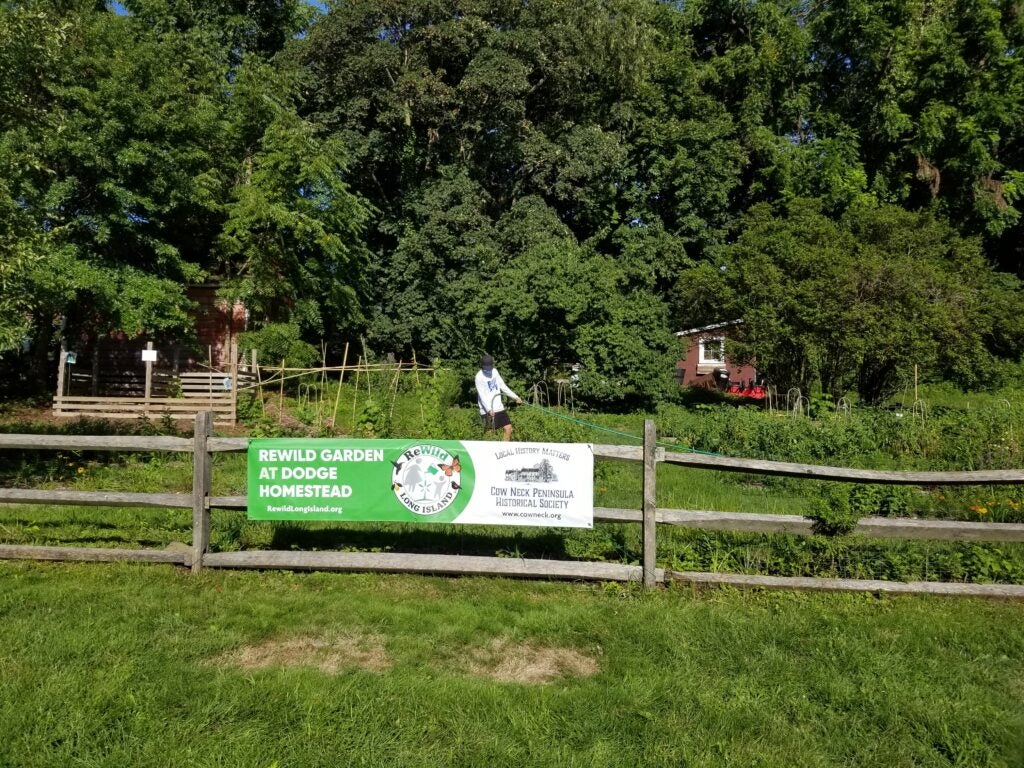
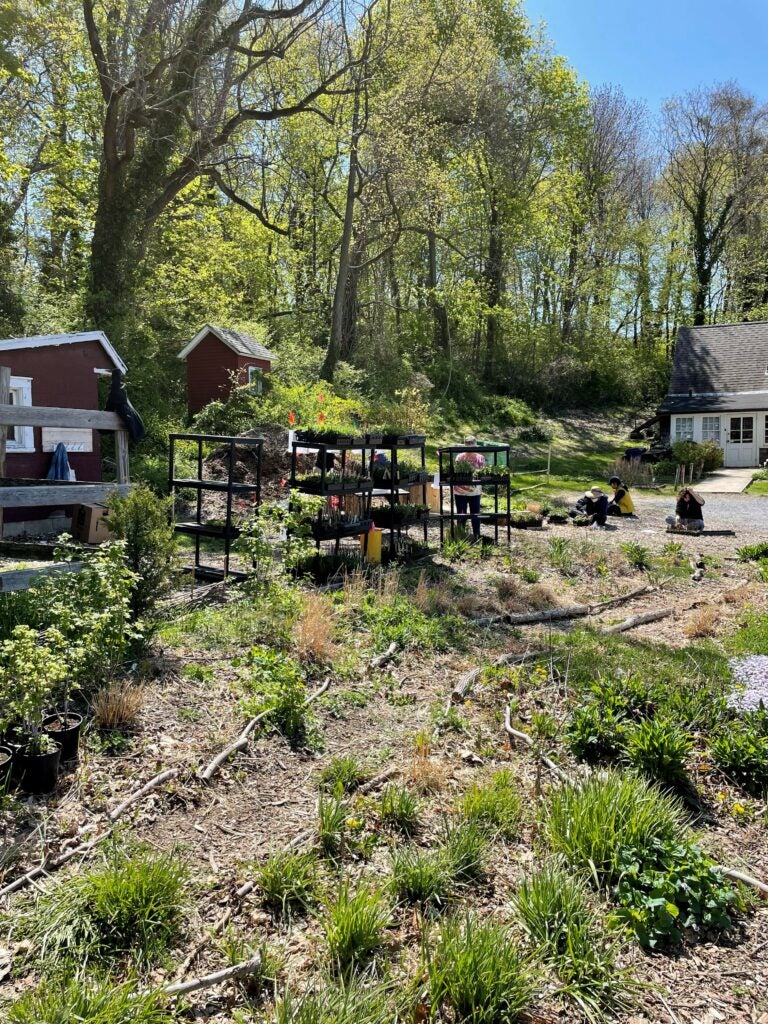
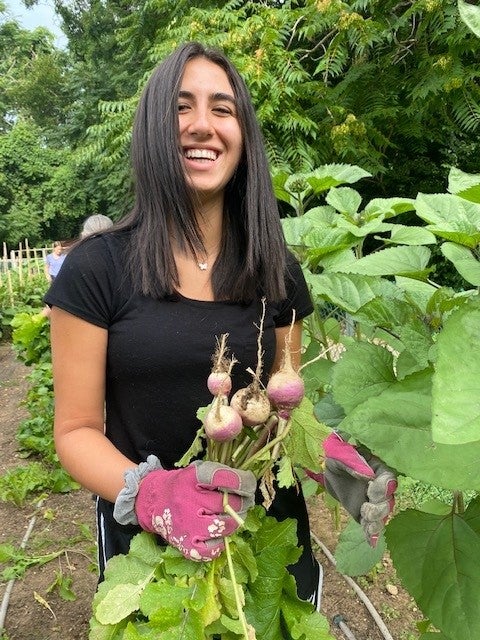
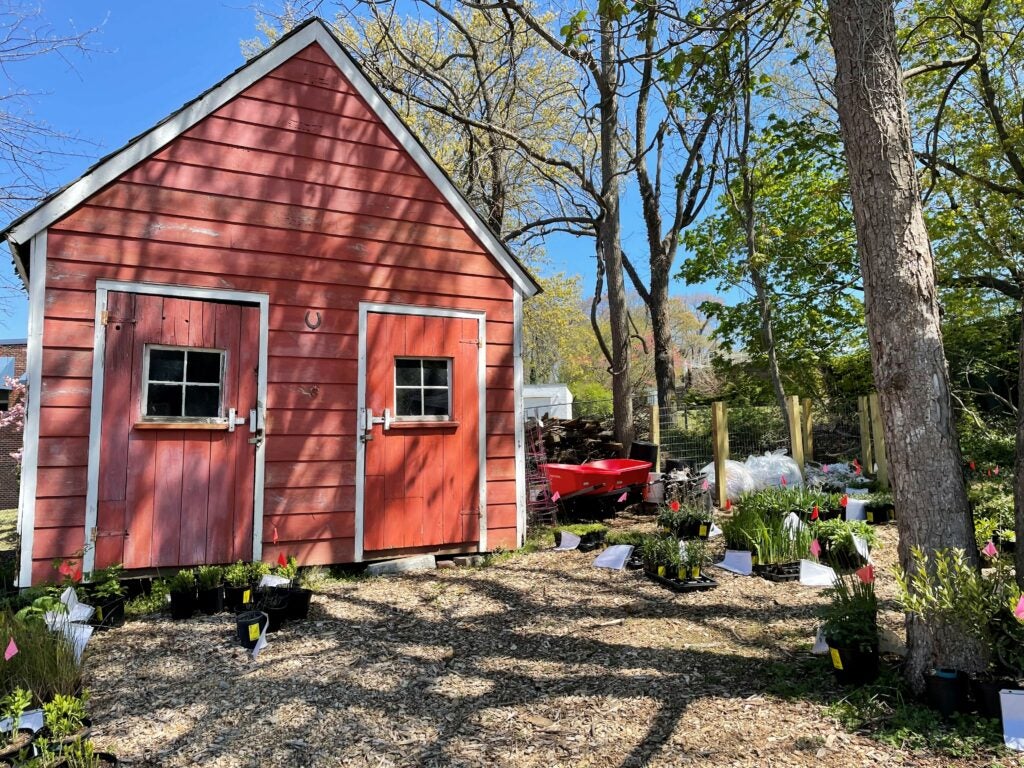
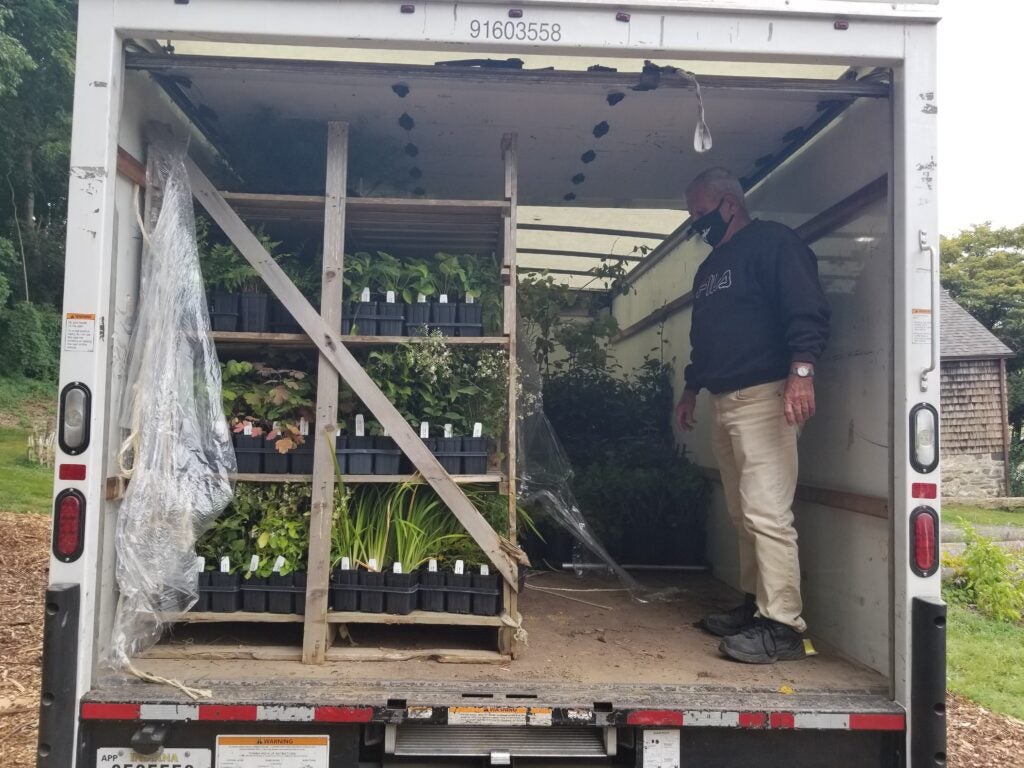
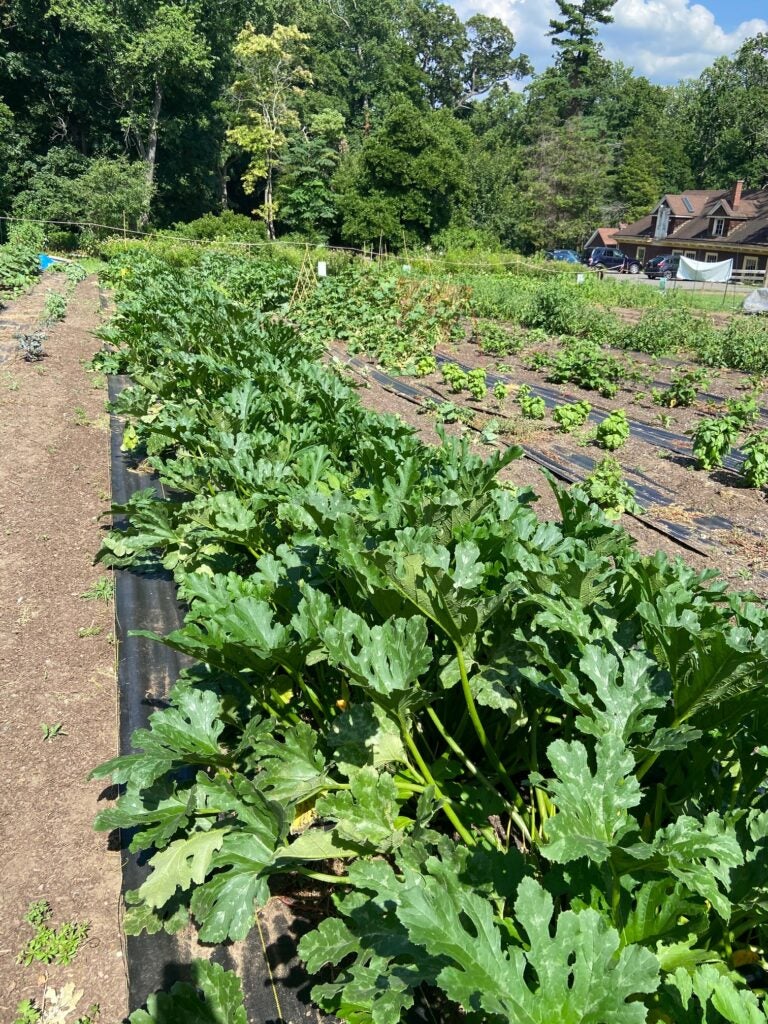
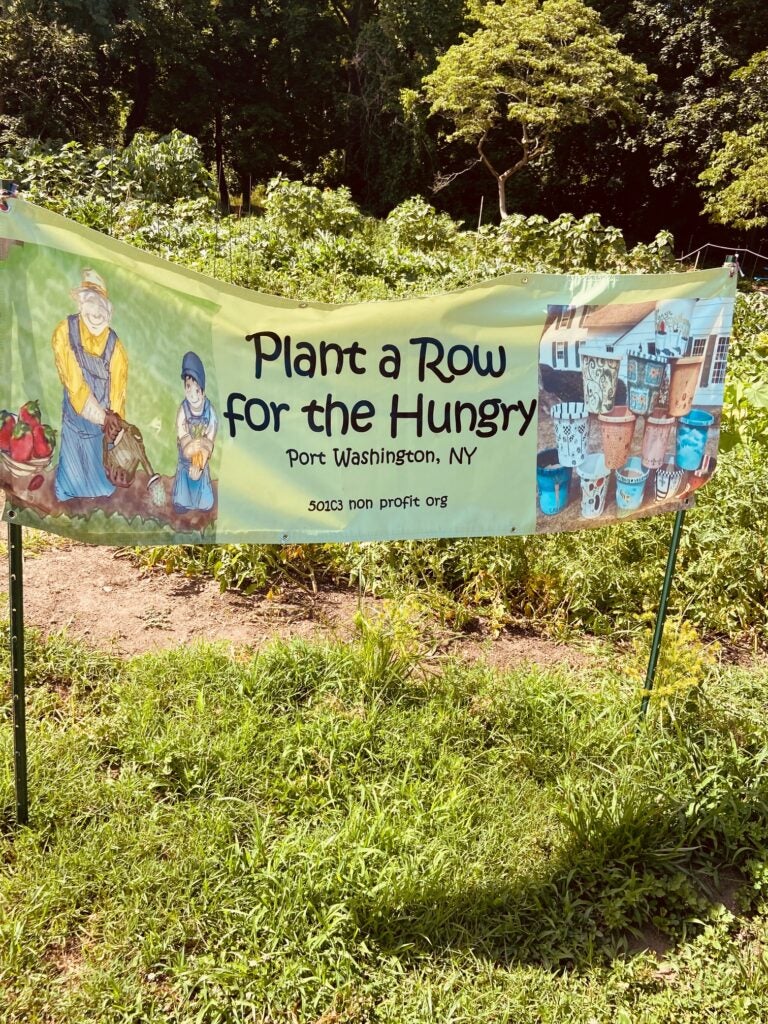
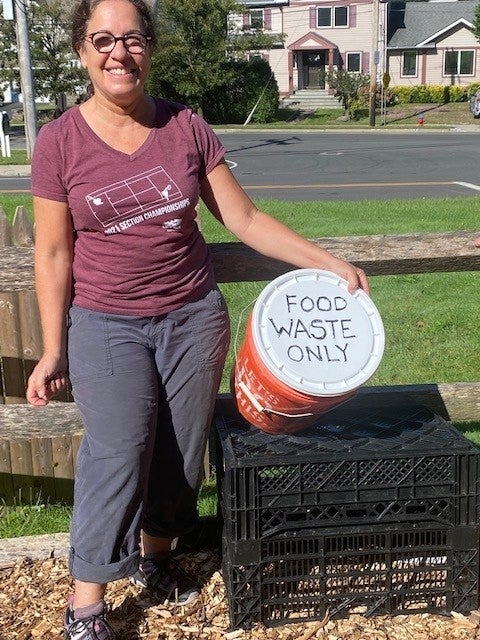
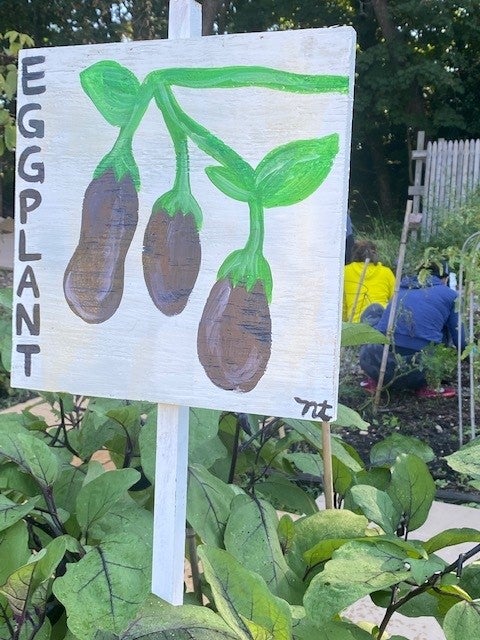
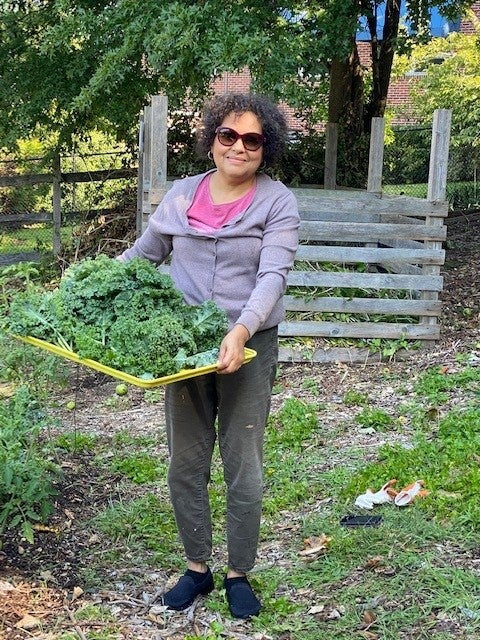
The oldest structure in the area, the Thomas Dodge House, was built in 1721. ReWild Long Island applied to Cowneck Peninsula Historical Society in 2020 for permission to act as steward of the land near the entrance of the building. The garden space is "not huge, but enough." ReWild's intention is to create a showcase garden that would demonstrate the benefits of native plants, to educate and create awareness of how they've historically been used in medicine, clothing, food and art by natives and immigrants. The garden is a sustainable landscape, with native plants fostering diverse pollinators, which in turn help create a plentiful vegetable bounty, sustained through regenerative practices including composting.
One of the goals of the project is to demonstrate the beauty that's possible in a native garden. Not only does a natural area like this improve the biodiversity of the region, but it attracts numerous pollinators. Compared to a manicured lawn and flower beds, this space is much more than simply a bed of weeds. When a garden space is rewilded with care, it can be beautiful and aesthetically pleasing without requiring a lot of maintenance or chemicals. Fewer chemicals in the garden also mean there is no polluted runoff into the aquifer or Long Island Sound. This garden provides a model and ideas for transforming the traditional residential yard to a more natural space that is healthier for humans and our ecosystem. The greatest benefit of the garden is what it provides for the pollinators who desperately need our support.
WATCH: ReWild Featured in Gardening Know How's Community Gardening for Everyone Interview Series
Garden Education
One intention for the rewilding garden is to offer learning through both seeing and doing. Education on composting and recycling is ongoing here, with a large compost heap tended communally, which keeps the project at zero-waste.
The garden is of special interest to local high schools. Students involved in taking action associated with climate change find that rewilding blends with their studies in organic gardening and environmentalism. The region's summer programs provide scholarships that allow students to work in their area of environmental interest rather than traditional summer jobs. Around twenty students are chosen, and some return as active mentors.
Summer programs at the ReWild Garden @ Dodge teach rewilding on a small scale, as well as biodiversity, regenerative farming and other environmental studies. Activities for high school students can include a visit to a wilderness preserve, walking trails and attending bird banding training at a bird preserve. Local landscape design experts hold lectures, and young people have a chance to interact with local farm and garden experts. They learn leadership skills through experiential learning, like installing a pollinator garden, harvesting rainwater, groundwater exchange, and learning composting methods. With increased confidence, some of the students go on to teach new learners, and some have chosen college majors in sustainable agriculture.
Sign up for the Gardening Know How newsletter today and receive a free copy of our e-book "How to Grow Delicious Tomatoes".
Community Support
The reputation of this rewilding space has grown over the last couple years due to partnering with other organizations, and ReWild's creation of a summer program that aims to fight hunger and climate change. As funding comes in, they plan to have a new arbor, repair a fence and run a water line to a new location, among other projects. Wholesalers and regular volunteers help out, and students often do the composting and weeding. The site also serves as a distribution center for plant wholesalers.
There are other organizations in the town working with ReWild to donate produce to a local food pantry. This year, for the first time the summer program will be hosted at the ReWild Garden @ Dodge. A highly visible landmark for Rewilding, the site hosts various other events and get-togethers - truly a community space.
Learn More About Our School and Community Garden Sponsorship Program
Every year, Gardening Know How awards $1,000 to 20 different, hand-picked garden projects across the United States and Canada. If your community or school garden has a growing, unmet need for more soil, seeds, fertilizers, building materials, or even just help getting the word out about your program, we're ready and willing to help you meet those needs. As community gardens and school gardening programs spring up all over, we're happy to do our part to help.
Interested in learning more about school or community gardens? Visit our Community Garden for Everyone page today.

Caroline Bloomfield is Manager of Marketing Communications at Gardening Know How since 2019. A northwest native, she has resided and gardened in multiple zones in the U.S. and is currently at home in Bandon, Oregon. Writing and editing for various publications since 1998, her BA in American Studies from Southern Maine University includes an emphasis in English. She was raised in California by avid gardeners and continues to enjoy the natural world with an appreciation for the concepts of sustainability and organic care for the planet.